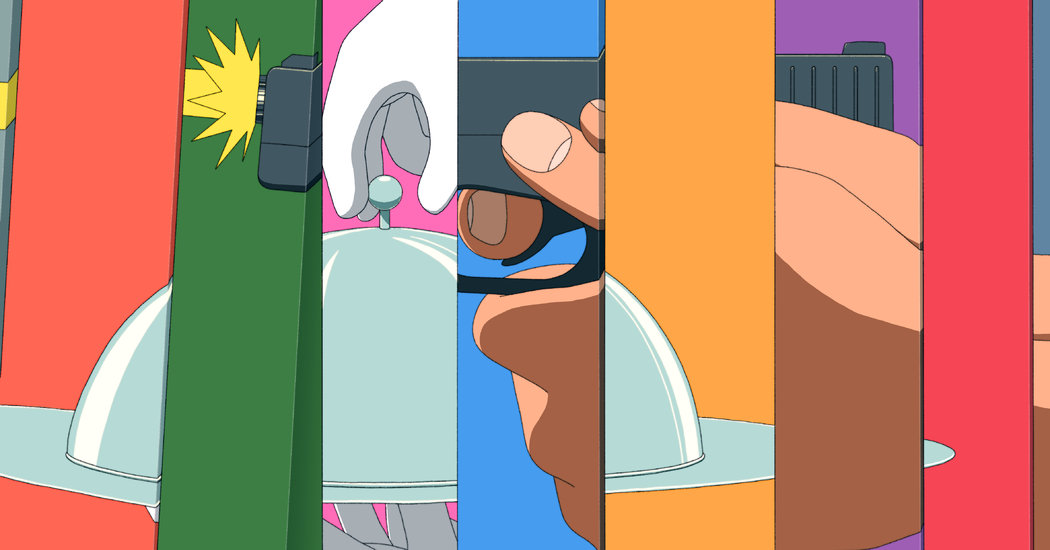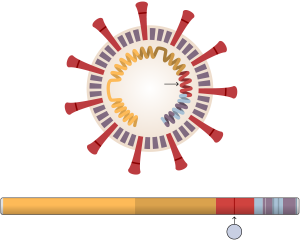The last few months have clarified some things for me. One is that I’m never going to finish reading Schreber’s “Memoirs of My Nervous Illness” or Wittgenstein’s “Culture and Value,” so there’s no reason to keep those mind-bending clunkers on my bedside table. This awful era asks many things of us; the maintenance of private pretensions is low on the list. It took me about five minutes of self-quarantine to reach this understanding. My second realization followed a couple of weeks later, but it had been brewing since February. My second realization was that my two favorite heroes in all of literature are Jeeves and Jack Reacher.
One of these heroes, created by the immortal humorist P.G. Wodehouse, is a charming and brilliant British valet employed by a member of the idle rich named Bertie Wooster, to Wooster’s perpetual relief; the other is a 6-foot-5 former military police investigator and Marine sniper-contest champion who wanders America punching his way into and out of trouble thanks to the wonderfully artless imagination of Lee Child. These are the characters whose stories I’ve been craving since this nightmare began. I kicked off my pandemic reading binge by pulling a Jeeves anthology from the bookshelf and a Reacher novel from the public library. Once the libraries closed, I maintained my fix by downloading Reacher novels to my phone. I end each day in bed mentally spooning with one of these two goofy, gallant men.
For all the hours I’ve spent enjoying Wodehouse’s stories over the years, I couldn’t tell you if I’ve read 20 Jeeves books or the same two books 10 different times. They all flow together in an effervescent stream of recurring characters with names like Gussie Fink-Nottle; farcical mix-ups during lazy weekends at country estates; pratfalls and plot twists and poached eggs, with language as carefree as skipped stones across water. And above it all, the problem-solving Jeeves, shimmering in and out of view like a river god’s reflection. The experience is as delightful as a dry martini sneaked from a millionaire’s bar cart. Jeeves books leave you lighter than they found you.
As with Jeeves, I struggle when I try to draw apart the strands of the enormous, tangled Jack Reacher knot in my memory. Is the book where Al Qaeda operatives are working out of a suite at the Four Seasons Hotel the same one in which Reacher somehow shoots a double agent in the shoulder from outside a windowless punishment hut? Is the spunky police officer Reacher beds before she detonates a dirty bomb the same woman he makes love to after they’re forced to dig the grave of an F.B.I. agent who’s been crucified by a cult leader? Regardless, the experience is as wistfully carefree as a pile of cement shooting a flaming machine gun made out of meat. Reacher books leave you kind of worn out.
Jeeves works within systems. His knowledge of the propriety and vanity of the upper classes means he can anticipate their behavior and leverage their own stupidity to serve Wooster’s needs as well as his own. His specialty is subterfuge as delicate as lacework, as when he convinced Sir Roderick Glossop that the reason Wooster pushed his son into the lake at Ditteredge Hall was that Wooster was insane, as evidenced by the fish and cats stored in his bedroom, a theory that made its way to Lord Bittlesham, undercutting the latter’s planned confrontation with Wooster for his (Wooster’s) impersonation of Rosie M. Banks, author of “Only a Factory Girl,” at the request of his old friend Bingo Little, who was trying to acclimate his uncle to the idea of marrying beneath his station.
Unlike Jeeves, Reacher has no fixed address; he has spent the last 20 years or so wandering the country, mostly by bus. (Sample travelogue: “All cities are the same, and all cities are different. They all have colors. Some are gray. This one was brown.”) He helps whoever stumbles into him asking for a hand. While Jeeves seems to have all known facts at his fingertips, when Reacher needs answers, he trudges to the library or consults a phone book, or just wanders around town asking questions. He doesn’t own a phone or a car and spends more time walking than any other fictional character I know. I read one Reacher book in which he was so intrigued by a suspicious recycling plant that he spent something like eight hours trudging to it and back, stopping only because he tripped over a corpse. Jeeves makes doing good look easy; Reacher can’t hide that it’s hard.
The vast stylistic differences between the two make it easier to identify what they have in common: a superpower of unyielding competence, the ability to do what they’ve been called to do using the gifts they have, which is the most precious superpower of all. It always hits me like a radio signal cutting through static, a broadcast from a parallel dimension of possibility. More and more, I feel as if my leverage on the world is slipping, that any talents I enjoy are inferior to the darkness of the moment, that I’m failing as a man and a citizen. Jeeves and Reacher suggest there’s another way — or maybe two, or maybe more. For me, their complementary approaches of demure, catlike problem-solving and doggish, walnut-knuckled obstinacy are as mind-expanding and revelatory as anything Schreber and Wittgenstein ever wrote. They are models for my better self, animated by the delight of a better world and the fury of having to fight for it.



















